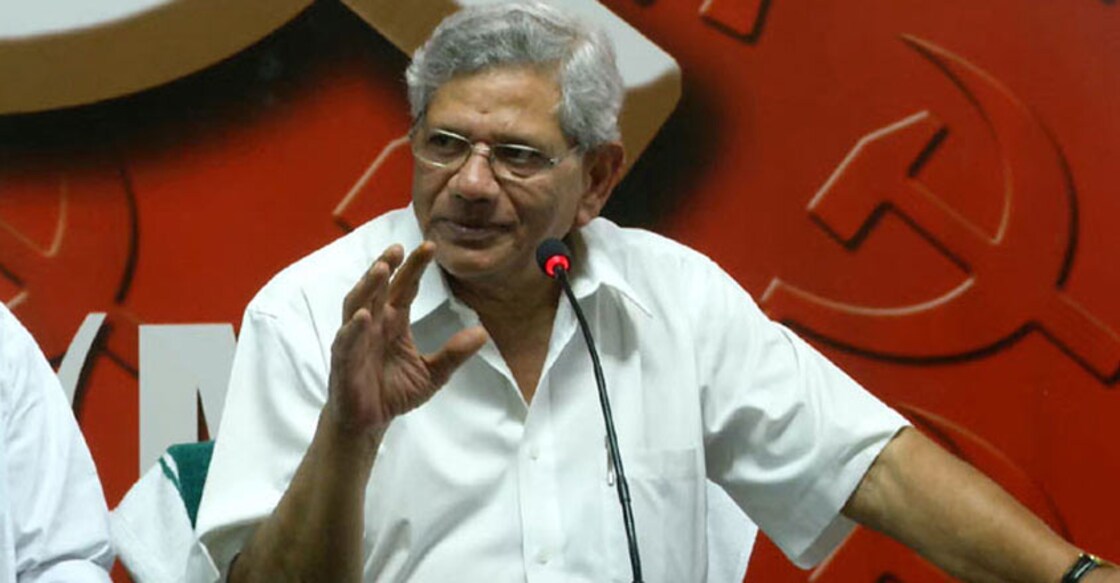CPM calls for selective boycott of Census operations

Mail This Article
Thiruvananthapuram: Communist Party of India (Marxist) has appealed to the nation to begin a new non-cooperation movement to fight the BJP government's “brazen anti-Muslim agenda” by refusing to answer any questions related to National Population Register.
“When the Centre is trying to confuse the people by saying that the NPR is part of the census operations, we appeal to them to say no to all NPR questions,” CPM general secretary Sitaram Yechury told reporters here on Sunday after the three-day Central Committee meeting of the party.
He said the CPM would soon undertake an extensive nationwide house-to-house campaign to explain how NPR is linked to the National Register of Citizens (NRC), and why questions on NPR should not be answered. Yechury, however, did not explain how the CPM would conduct the national house-to-house campaign given its paltry presence in most Indian states.
Yechury said it was indeed true that the NPR, when it was first done, was part of the Census operations. “Now, we are very clear that the NPR is the first stage towards the NRC notwithstanding what the prime minister said publicly,” Yechury said.
The prime minister had said that there were no talks about the NRC since 2014, the year he came to power. “But three months after he came to power I was in the Rajya Sabha when a question was asked on the NPR. The home minister (Rajnath Singh) had then said that the NPR would be conducted all over the country based on the amendment to the Citizenship Act. He also said that this NPR would form the basis of the National Register of Indian Citizens, which was how it was called then,” Yechury said.
The CPM leader said there would be two sets of questions. One related to the Census and the other for NPR purposes. “Census is the count of people living in India. The NPR, on the other hand, is about citizenship. Say yes to questions on census. But as far as NPR questions are concerned, we will not answer,” Yechury said.
Yechury said that the house-to-house campaign would culminate by March 23, before the house-listing phase begins on April 10. The day is also the martyrdom day of Bhagat Singh.
The data for the NPR was first collected in 2010 along with the house-listing phase of Census of India 2011. The updation of this data was done during 2015 by conducting door to door survey. The digitisation of the updated information has been completed.
Now it has been decided to update the National Population Register along with the house-listing phase of Census 2021 during April to September 2020 in all the States/UTs except Assam. A Gazette notification to this effect has already been published by the central government.
While Census questions are an attempt to create the profile of a person - like marriage, occupation and even fertility status - the NPR ones are an attempt to understand the history of a person - like place of birth, nationality, and duration of stay at the present address. Some questions do overlap like name, date of birth and marital status.
Earlier writer and activist Arundhati Roy had asked people to give false information when enumerators reach homes seeking information. “Don't give wrong information,” Yechury said. It could be punishable. But refusing to answer NPR questions is not. “Even the Centre has said it is voluntary. So you can refuse to answer if you are not interested,” Yechury said.
The CPM leader also said that state governments could also refrain from deploying officials for NPR duties. “A state has the right to say the NPR is not in its interest. It will be hard for the Centre to implement the NPR without the cooperation of states as that would mean employing crores of youths to do the information collection work. But then it will also be a good thing as it would create a lot of jobs,” Yechury said.
He further said that the CPM would appeal to all chief ministers who had opposed the CAA to stop the NPR process like the Kerala government had done.

